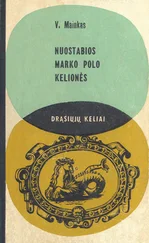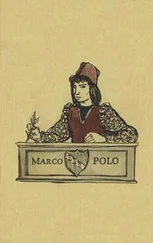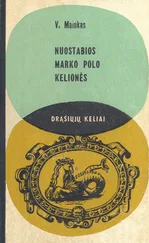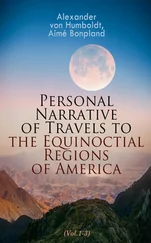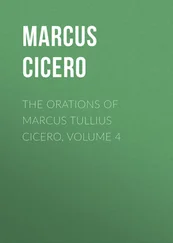The avarice of the Khalif was proverbial. When the Mongol army was investing Miafarakain, the chief, Malik Kamál, told his people that everything he had should be at the service of those in need: "Thank God, I am not like Mosta'sim, a worshipper of silver and gold!"
( Hayton in Ram. ch. xxvi.; Per. Quat. 121; Pachym. Mic. Palaeol. II. 24; Joinville , p. 182; Sanuto , p. 238; J. As. sér. V. tom. xi. 490, and xvi. 291; D'Ohsson , III. 243; Hammer's Wassáf , 75–76; Quat. Rashid. 305.)
NOTE 8.—Nevertheless Froissart brings the Khalif to life again one hundred and twenty years later, as " Le Galifre de Baudas ." (Bk. III. ch. xxiv.)
[1] Not that Alaü ( pace Mr. Longfellow) ever did see Cambalu.
Table of Contents
HOW THE CALIF OF BAUDAS TOOK COUNSEL TO SLAY ALL THE CHRISTIANS IN HIS LAND.
I will tell you then this great marvel that occurred between Baudas and
Mausul.
It was in the year of Christ[NOTE 1] … that there was a Calif at Baudas who bore a great hatred to Christians, and was taken up day and night with the thought how he might either bring those that were in his kingdom over to his own faith, or might procure them all to be slain. And he used daily to take counsel about this with the devotees and priests of his faith,[NOTE 2] for they all bore the Christians like malice. And, indeed, it is a fact, that the whole body of Saracens throughout the world are always most malignantly disposed towards the whole body of Christians.
Now it happened that the Calif, with those shrewd priests of his, got hold of that passage in our Gospel which says, that if a Christian had faith as a grain of mustard seed, and should bid a mountain be removed, it would be removed. And such indeed is the truth. But when they had got hold of this text they were delighted, for it seemed to them the very thing whereby either to force all the Christians to change their faith, or to bring destruction upon them all. The Calif therefore called together all the Christians in his territories, who were extremely numerous. And when they had come before him, he showed them the Gospel, and made them read the text which I have mentioned. And when they had read it he asked them if that was the truth? The Christians answered that it assuredly was so. "Well," said the Calif, "since you say that it is the truth, I will give you a choice. Among such a number of you there must needs surely be this small amount of faith; so you must either move that mountain there,"—and he pointed to a mountain in the neighbourhood—"or you shall die an ill death; unless you choose to eschew death by all becoming Saracens and adopting our Holy Law. To this end I give you a respite of ten days; if the thing be not done by that time, ye shall die or become Saracens." And when he had said this he dismissed them, to consider what was to be done in this strait wherein they were.
NOTE 1.—The date in the G. Text and Pauthier is 1275, which of course cannot have been intended. Ramusio has 1225.
[The Khalifs in 1225 were Abu'l Abbas Ahmed VII. en-Nassir lidini 'llah (1180–1225) and Abu Nasr Mohammed IX. ed-Dhahir bi-emri 'llah (1225–1226).—H. C.]
NOTE 2.—" Cum sez regisles et cum sez casses. " (G. T.) I suppose the former expression to be a form of Regules , which is used in Polo's book for persons of a religious rule or order, whether Christian or Pagan. The latter word ( casses ) I take to be the Arabic Kashísh , properly a Christian Presbyter, but frequently applied by old travellers, and habitually by the Portuguese ( caxiz, caxix ), to Mahomedan Divines. (See Cathay , p. 568.) It may, however, be Kází .
Pauthier's text has simply "à ses prestres de la Loi."
Table of Contents
HOW THE CHRISTIANS WERE IN GREAT DISMAY BECAUSE OF WHAT THE CALIF HAD SAID.
The Christians on hearing what the Calif had said were in great dismay, but they lifted all their hopes to God, their Creator, that He would help them in this their strait. All the wisest of the Christians took counsel together, and among them were a number of bishops and priests, but they had no resource except to turn to Him from whom all good things do come, beseeching Him to protect them from the cruel hands of the Calif.
So they were all gathered together in prayer, both men and women, for eight days and eight nights. And whilst they were thus engaged in prayer it was revealed in a vision by a Holy Angel of Heaven to a certain Bishop who was a very good Christian, that he should desire a certain Christian Cobler,[NOTE 1] who had but one eye, to pray to God; and that God in His goodness would grant such prayer because of the Cobler's holy life.
Now I must tell you what manner of man this Cobler was. He was one who led a life of great uprightness and chastity, and who fasted and kept from all sin, and went daily to church to hear Mass, and gave daily a portion of his gains to God. And the way how he came to have but one eye was this. It happened one day that a certain woman came to him to have a pair of shoes made, and she showed him her foot that he might take her measure. Now she had a very beautiful foot and leg; and the Cobler in taking her measure was conscious of sinful thoughts. And he had often heard it said in the Holy Evangel, that if thine eye offend thee, pluck it out and cast it from thee, rather than sin. So, as soon as the woman had departed, he took the awl that he used in stitching, and drove it into his eye and destroyed it. And this is the way he came to lose his eye. So you can judge what a holy, just, and righteous man he was.
NOTE 1.—Here the G. T. uses a strange word: " Or te vais a tel cralantur." It does not occur again, being replaced by chabitier (savetier). It has an Oriental look, but I can make no satisfactory suggestion as to what the word meant.
Table of Contents
HOW THE ONE-EYED COBLER WAS DESIRED TO PRAY FOR THE CHRISTIANS.
Now when this vision had visited the Bishop several times, he related the whole matter to the Christians, and they agreed with one consent to call the Cobler before them. And when he had come they told him it was their wish that he should pray, and that God had promised to accomplish the matter by his means. On hearing their request he made many excuses, declaring that he was not at all so good a man as they represented. But they persisted in their request with so much sweetness, that at last he said he would not tarry, but do what they desired.
Table of Contents
HOW THE PRAYER OF THE ONE-EYED COBLER CAUSED THE MOUNTAIN TO MOVE.
And when the appointed day was come, all the Christians got up early, men and women, small and great, more than 100,000 persons, and went to church, and heard the Holy Mass. And after Mass had been sung, they all went forth together in a great procession to the plain in front of the mountain, carrying the precious cross before them, loudly singing and greatly weeping as they went. And when they arrived at the spot, there they found the Calif with all his Saracen host armed to slay them if they would not change their faith; for the Saracens believed not in the least that God would grant such favour to the Christians. These latter stood indeed in great fear and doubt, but nevertheless they rested their hope on their God Jesus Christ.
So the Cobler received the Bishop's benison, and then threw himself on his knees before the Holy Cross, and stretched out his hands towards Heaven, and made this prayer: "Blessed LORD GOD ALMIGHTY, I pray Thee by Thy goodness that Thou wilt grant this grace unto Thy people, insomuch that they perish not, nor Thy faith be cast down, nor abused nor flouted. Not that I am in the least worthy to prefer such request unto Thee; but for Thy great power and mercy I beseech Thee to hear this prayer from me Thy servant full of sin."
Читать дальше


